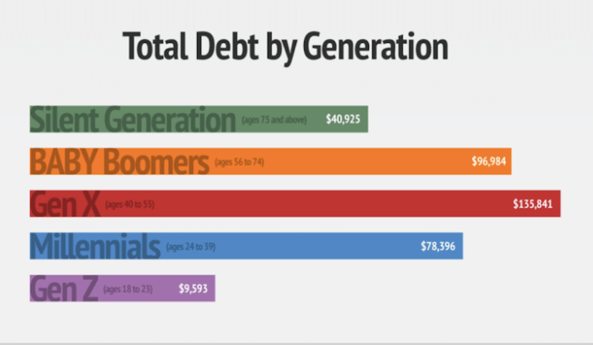When it comes to choosing your 401(k) lineup, it’s easy to become overwhelmed by your options. It’s likely why more than 70% of 401(k) plans include at least one target-date fund. Also known as lifecycle or age-based funds, target date funds were created to simplify the investment choices for 401(k) plan contributors. Depending on your company’s 401(k) plan, they may be named something like Target Date Fund 2050, meaning you anticipate retiring around 2050. Target-date funds give employees the option of choosing one fund that diversifies their investments among stocks, bonds, and cash (the allocation) throughout their working life.
Considered a “set-it-and-forget-it” investment option, some investors choose target date funds as a default so they can avoid having to rebalance and update their portfolio allocations over time. The theory is that younger participants, having more years until retirement, can take higher risks in order to achieve higher expected returns. Since the funds focus on a selected time frame or target date (usually retirement), its asset allocation mix becomes more conservative as that date approaches. The percentage of stocks is reduced, and the percentage of bonds and cash is increased.
While target date funds may help encourage employees to participate in their company’s 401(k), there are a few misconceptions about how they work, and it’s important to understand these considerations before choosing your 401(k)’s investment lineup.
Target Date Funds Can Significantly Vary
Many investors get caught up in the year attached to a target date fund. If they change jobs and contribute to a different 401(k) plan, they may assume the target date fund is the same as their previous plan. Or, they believe that a 2050 target date fund is nearly identical to a 2055 target date fund.
However, target date funds with the same target date can significantly vary in their portfolio lineup. Fund families typically have their own unique approach with their target date funds, meaning a John Hancock target date fund likely won’t offer the same ratio of stocks and bonds as a Fidelity plan.
Take a look at this example from InvestorJunkie:
The percent of equities at age 65 significantly differs between target date families. When each of the target date funds has its own fee structure, mix of assets, and risk tolerance, it’s nearly impossible to measure performance between these funds.
Target date funds don’t just vary by their lineup. They can also have different fees.
As we can see in the chart above, the expense ratios considerably vary based on the target date and the target date family. Fidelity Freedom is more than 0.5% higher than Vanguard, which can take a toll on your portfolio when you’re investing for several decades.
Should I Invest in a Target Date Fund?
Like Though not a panacea, target date funds offer a reasonable alternative to the often confusing world of too many investment choices. Ultimately, there isn’t a single recommendation one can make for everyone. Each person has unique needs and circumstances, and they need to be taken into consideration when selecting their 401(k) lineup.
Before choosing a target date fund, there are a few factors to consider.
What do you want the fund to do for you?
Do you want a fund that is at its most conservative allocation when you retire or a fund that will take you through retirement? A target date fund’s allocation changes based on a set timeframe. If your fund is designed to help you get TO retirement, the amount invested in stocks will substantially decrease as you near your retirement date.
A fund that’s designed to get you THROUGH retirement changes allocations based on your life expectancy. These funds will have a greater amount in stocks at retirement than the to funds and thus be higher risk. Knowing which type of fund you own is critical to your ability to assessing its riskiness, along with its long-term expected returns if you are able to stay the course with it through troubled times.
What are the funds’ target allocations?
Whether it’s a to or a through plan, what are its target allocations? How are decisions about allocation made and do those choices complement your needs?
What's your risk tolerance?
Target-date funds can be more aggressive or more conservative than expected. During the 2008 financial crisis, many investors with 2010 target-date funds suffered severe losses because they didn’t realize their portfolio was invested in more stocks than they thought. Would you have stayed invested if the fund had struggled in 2008? If not, perhaps you should look at a more conservative option.
What are the fees?
Target-date funds can often cost more than other funds because they’re known for their long horizons, and their fees will vary by target date family and target date. If you are more cost conscious, you may prefer to invest in index funds.
Choosing Your 401(K) Lineup.
When there are a plethora of investment options from which to choose, take the time to understand what you want from them and find a fund that meets your needs. If you would like to discuss target date funds or other 401(k) options. I encourage you to reach out to me. Call my office at (949) 221-8105 x 2128, or email me at michael.loo@lpl.com.
The target date is the approximate date when investors plan to start withdrawing their money.
The principal value of a target fund is not guaranteed at any time, including at the target date.
No strategy assures success or protects against loss



